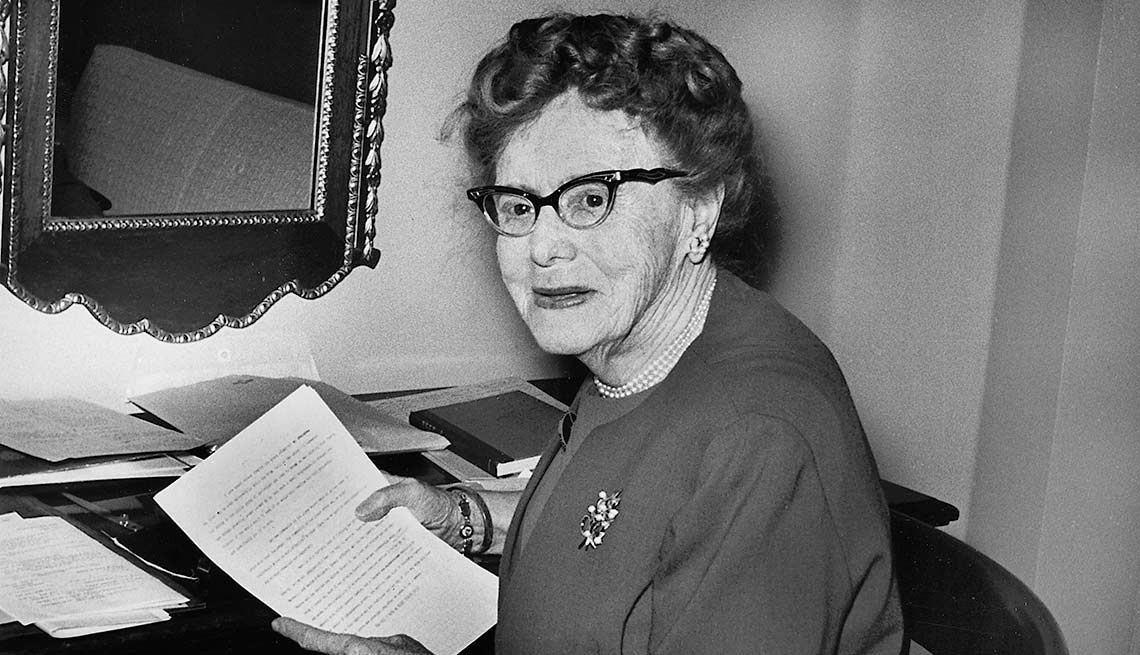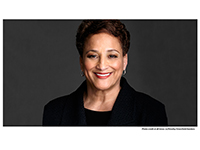Nevertheless, She Persisted
Our founder, Dr. Ethel Percy Andrus, defied convention, challenged stereotypes and made life better for all ages
And what a rich history it is. It is the story of struggle and sacrifice, as Susan B. Anthony said, “in the making, shaping and controlling of the circumstances of life.” It is the story of promises to keep for future generations. Perhaps most of all, it is a story of persistence.
For me, one of the authors of that history is Ethel Percy Andrus, who founded AARP in 1958, the year I was born. She personified this year’s National Women’s History Month theme, “Nevertheless She Persisted.” Dr. Andrus was a disruptor who defied convention and challenged stereotypes her entire life.
In her day, it was uncommon for women to pursue higher education, female principals in high schools were rare, and retirement was a time to sit back and do nothing. Nevertheless, Ethel Percy Andrus persisted. She pursued her education to the highest level to become Dr. Andrus. She was the first female high school principal in California, and she founded the National Retired Teachers Association (NRTA) and AARP after she retired.
Dr. Andrus looked around 1950s America and saw workers routinely forced out of the workforce at age 65 through mandatory retirement. She saw retired teachers struggling with no health insurance and small, inadequate pensions. She saw insurers canceling auto policies for people at age 65 or raising premiums to unaffordable levels by automatically categorizing anyone at that age as a reckless driver.
She set out to change that by creating the NRTA and AARP. She focused on developing solutions, widening opportunities and upending negative aging stereotypes. AARP gave older people a collective voice to advocate for pension reform, affordable health care, financial security, improved housing and an end to age discrimination. She fought for affordable health insurance for older Americans and believed that their collective purchasing power should qualify them for group health insurance. But no company would write a policy. She was turned down 42 times. Nevertheless, she persisted, finally creating the first group health insurance program for older Americans in the country, a decade before Medicare.
Thanks to Dr. Andrus and women leaders like her, women today are living and aging better than ever before, actively engaged in making life better for all members of society and demonstrating that our later years can be a time of growth. While times have changed since Dr. Andrus began her crusade, the need for women as leaders, innovators and role models for future generations has not; nor has the need to help and empower women to age successfully.
Women today tend to live longer than men, are more likely to be primary caregivers to aging family members and friends, are more likely to need care and support as they age, are more likely to live alone, and generally have less in retirement savings and receive less in Social Security benefits. As AARP addresses these challenges and continues working to empower men and women to choose how they live and age, we will continue to be inspired by Dr. Andrus and guided by the knowledge that even though she faced many obstacles, nevertheless, she persisted.
Jo Ann Jenkins is CEO of AARP.
Also of Interest
- Read 25 inspiring quotes to mark Women's History Month.


